When it comes to breathing purified air indoors, many people tend to forget the basement. Such ignorance can lead to several problems down the line. We don’t want to fight mold and bad odor, right?
Having a high-quality basement air purifier can help you keep the cellar smelling fresh. Such purifiers also aid in preventing mold and odor issues. They can avoid dust buildup, too.
In this article, we will be going over some of the best air purifiers for basements. We will talk about the benefits they offer, as well as some of the recommended models available in the market.
Comparison of the Best Air Purifiers For Basements
| IMAGE | PRODUCT | |
|---|---|---|
Our Top Pick  |
| View Latest Price → |
 |
| View Latest Price → |
Best Budget Option 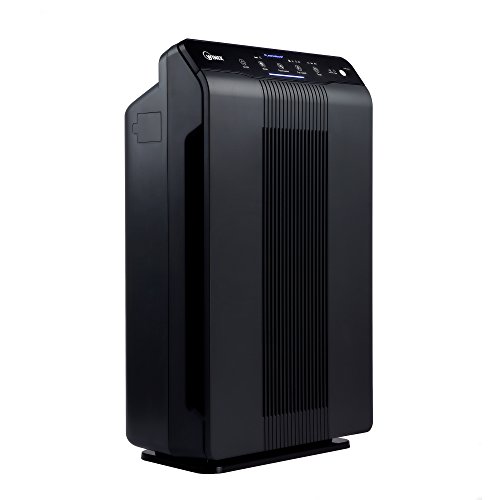 |
| View Latest Price → |
 |
| View Latest Price → |
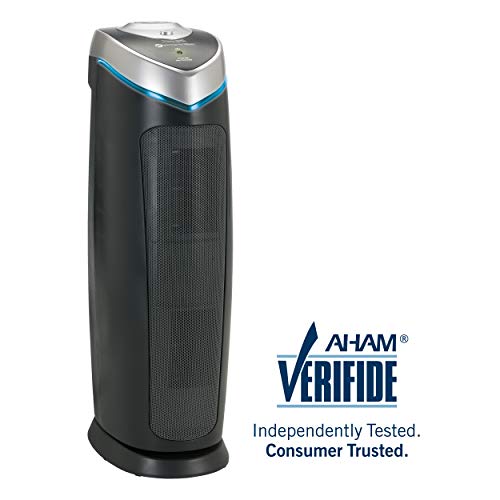 |
| View Latest Price → |
 |
| View Latest Price → |
How to Choose an Air Purifier for Your Basement
Before we get to our ‘Best Air Purifiers for Basements’ review list, we have to talk about certain tips which can help you buy the best product on the market. Not every air purifier is the same. That is why you need to look for particular features and specifications to invest in a worthwhile product.
Filtration System
You need to look at the filtration or purification system featured in an air purifier. If you want to get rid of pollutants, you should opt for a unit with a HEPA filter. A device with an activated carbon filter is going to help get rid of the odor. Furthermore, a unit which uses UV light can aid with killing many viruses and germs.
Area of Coverage
Basements can be quite large. That is why you need to ensure the air purifier you buy can cover the space you have. Before making a choice, you should measure the basement or cellar in square feet. Use that measurement to see if a particular air purifier can match your needs or not. Reading reviews and device specifications can help you decide if a unit is right for you.
Mode of Operation
You should opt for an air purifier that is easy to use. No one likes to waste time trying to figure out how to properly make an electronic device function.
Maintenance
Another thing you should look at is the level of maintenance required. How many times will you have to change the filter? That is an important question to ask when you are looking to invest your money in an air purifier.
Noise Production
This might not be a big thing for some, but if your basement also serves as a recreational room or a bedroom, you should opt for a unit that is quiet while it operates.
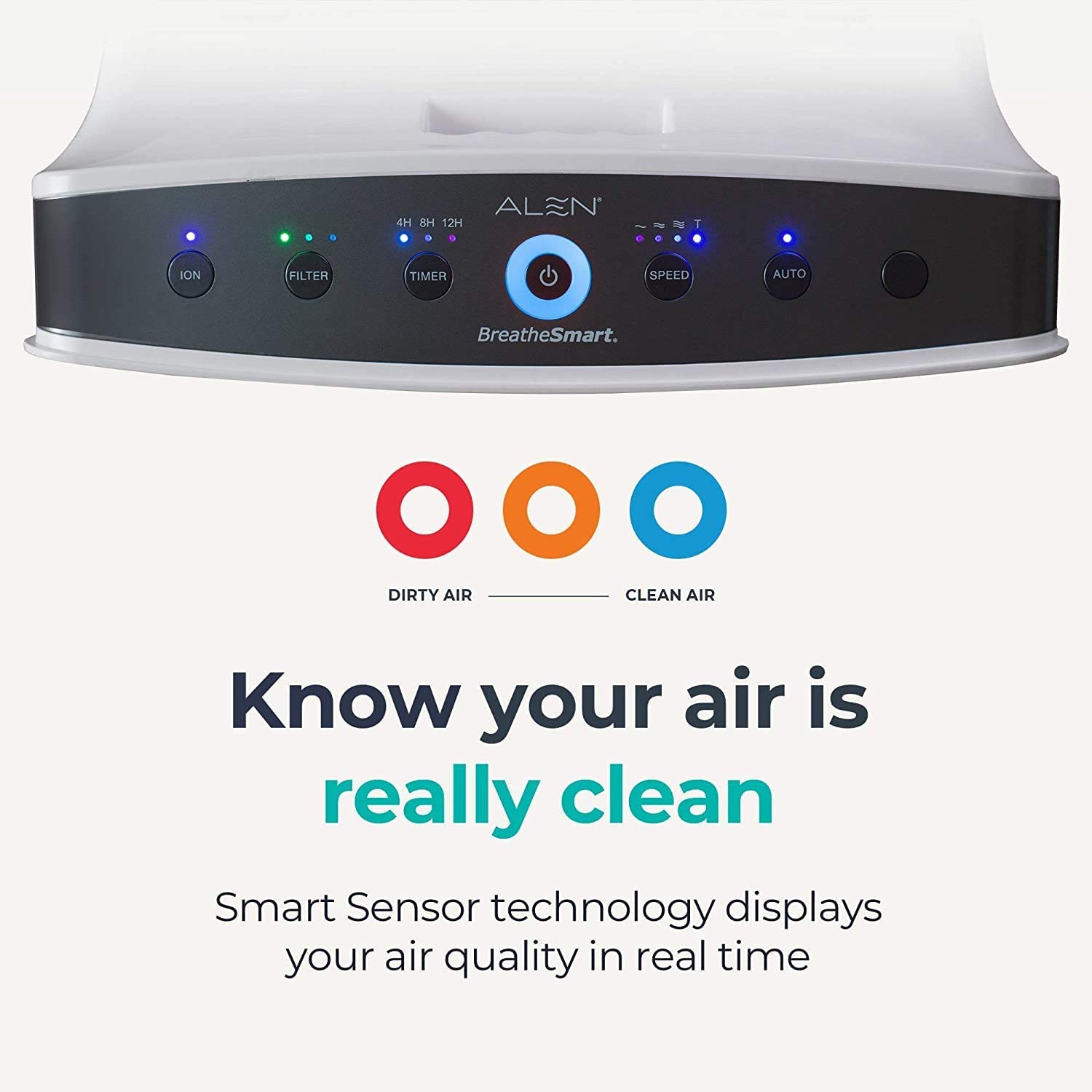
At a Glance: Our Top Picks for Air Purifiers For Basement
- OUR TOP PICK: Alen BreatheSmart Classic
- RUNNER-UP: Fellowes AeraMax 290
- BEST BUDGET OPTION: Winix 5500
Review of the Best Basement Air Purifiers
So, you now have learned about what a basement air purifier can offer and why you should consider having one. For those wondering about the best products available in the market, we have created a well-researched list for your consideration.
All of the selections on this list will help you make an informed buying decision to make your life better. Let’s start!
Best Overall
Alen BreatheSmart Classic

Specifications
Decibel Level: 48.7 dB
# of Fan Speed Options: 4
Coverage Area: 1,100 sq. ft.
Dimensions: 10 x 17.75 x 26.75 inches
Weight: 21 pounds
We may earn commission from purchases made from our links, at no additional cost to you
Review
We are going to begin our list with the Alen BreatheSmart Classic basement air purifier. It is our best overall selection and we are going to tell you how we came to such a determination. With this air purifier, you will get a unit which can remove mold from your basement.
This device has a HEPA filter, which is very effective even when placed in a cellar. Another impressive feature is that this air purifier is meant for large basements. It offers area coverage of 1100 square feet and it is very quiet during operation.
Furthermore, it is easy to maintain because the filters can keep performing without being replaced for up to a year. This device has a light which will let you know when the filter requires replacement. You also get a lifetime warranty with this product. There is also a reliable 60-day money back guarantee.
With all of the features this air purifier brings to the table, you see why this unit is our best overall choice. The only downside is that it is quite large and requires space. Keep in mind this unit is very powerful for smaller rooms and won’t be most efficient in these small spaces.
Bottom Line
The Alen BreatheSmart Classic does a great job of offering you an effective air purifier for basements. Not only does the HEPA filter help get rid of mold, but this unit is also very easy to maintain. It is powerful enough to cover large basements without trouble.
Pros
Energy Efficient Unit
Has an Appealing Design
Gives You Whisper-Quiet performance
Advanced True HEPA Filtration System
Great for Open Concept Layouts (Offices or Huge Houses)
Cons
Some People Might Not Like the Space it Takes Up in Medium or Smaller Rooms
Runner-up
Fellowes AeraMax 290

Specifications
Decibel Level: N/A
# of Fan Speed Options: N/A
Coverage Area: 600 sq. ft.
Dimensions: 8.1 x 16 x 25.1 inches
Weight: 13.51 pounds
We may earn commission from purchases made from our links, at no additional cost to you
Review
As the runner-up on our list, we have the Fellowes AeraMax 290. This unit is recommended for medium to small-sized areas. It can help reduce odors from an area as big as 600 square feet. It features auto detecting technology which allows this unit to sense when air requires to be purified. Take note this device has been certified asthma and allergy friendly by the Asthma and Allergy Foundation of America.
It makes use of a True HEPA Filter (as well as an antimicrobial treatment) to remove at least 99.99% of allergens, dust mites, mold spores, germs, and other particles in the air. The carbon filter ensures you won’t have to deal with odors in the basement. It also doesn’t produce a lot of noise while operating. It has a special high-performance mode to keep your household safe during flu seasons.
This device features four-stage purification. It consists of the carbon filter, the True HEPA filter, the AreaSafe Antimicrobial Treatment, and PlasmaTrue Technology. The PlasmaTrue Technology safely removes pollutants in the air through creating an ionized field. The AreaSafe Antimicrobial Treatment offers built-in protection from odor-promoting bacteria, fungi, and even mildew on the HEPA filter.
Bottom Line
The four-stage purification process featured in this Fellowes AeraMax 290 is great to protect your household from germs and allergens. Furthermore, it provides you with fresh, breathable air in the basement. You also won’t have to worry about any mold problem.
Pros
Easy to Use and Maintain
Covers an Area Coverage of 300-600 Square Feet
Has a Carbon Filter to Prevent Odor in the Basement
Cons
Begins Decreasing in Effectiveness After the 400 Square Feet Mark
Best for the Money
Winix 5500

Specifications
Decibel Level: N/A
# of Fan Speed Options: 3
Coverage Area: 360 sq. ft.
Dimensions: 15 x 8.2 x 23.6 inches
Weight: 15.4 pounds
We may earn commission from purchases made from our links, at no additional cost to you
Review
For those wondering about our best for the money selection, we have the Winix 5500. The True HEPA filter featured in this unit can capture 99.97% of pollutants in the air. This means you and your household will remain safe from dust mites, pollen, pet dander, and even allergens that are up to 0.3 microns in size.
It also gets rid of odors by using a washable AOC carbon filter. This filter has been made from activated carbon granules. It is washable, as the name states, so you can keep reusing it and save money down the line. There is also the PlasmaWave Technology, which works as a permanent filter. It breaks down chemical vapors, pollutants, odor-causing particles, and allergens without producing ozone.
The smart sensors present in this device can read the air. This, in turn, helps the auto adjust mode to filter the air depending on the quality that is required. It has an LED indicator to show the quality of air. A blue light is good, with amber being bad, and red means poor air quality.
During manual mode, this air purifier will continue work on the fan speed you select. The four fan speeds are low, medium, high, and turbo. You can also sleep with this device operating because of the very silent sleep mode. It can offer 360 square feet of coverage. It has an LED indicator to let you know when to change the filters.
Bottom Line
Even though the Winix 5500 doesn’t provide a lot of area coverage, it makes up for it through its effective operation. The three-stage purification process ensures your basement is odorless as well as germ-free. It can help your household breathe fresh and clean air.
Pros
Has an Appealing Design
Makes Use of a Three-Stage Purification Process
Sleep Mode Enables This Device to Operate Quietly
Lets You Know When the Filters Need to Be Changed
Smart Sensors Read the Quality of Air and Adjust the Unit
Cons
Doesn’t Work Well for Medium and Large-Sized Rooms
Editor’s Pick
Honeywell HPA300

Specifications
Decibel Level: N/A
# of Fan Speed Options: N/A
Coverage Area: 465 sq. ft.
Dimensions: 9.25 x 20 x 22.25 inches
Weight: 21 pounds
We may earn commission from purchases made from our links, at no additional cost to you
Review
In fourth place, we have the Honeywell True HEPA Allergen Remover. This Air Purifier is recommended for medium-sized basements. It can help give you an area coverage of 470 square feet. While it is on the smaller side when it comes to air purifiers, it does offer you a lot of power.
Due to the featured HEPA filter, this device ensures it will get rid of mold spores from basements and cellars. The activated carbon pre-filter is present in this unit to prevent your basement from smelling.
This unit can remove close to 99.97% of particles (including allergens) from the air. This means that the air in your basement will be fresh. You can easily pair this unit up with a dehumidifier to guarantee no mold problems ever arise in the cellar.
It is easy to use as well as to maintain. The pre-filter will need to be replaced every three months to ensure this unit’s effectiveness. The HEPA filter needs only to be replaced once a year. There is a light indicator to let you know when these filters need to be changed. You don’t need any tools for the process.
Bottom Line
Honeywell is a renowned name when it comes to air purifiers. The Honeywell True HEPA Allergen Remover is great for ensuring you have clean air to breathe in the basements. It also helps get rid of mold spores. While it isn’t meant for larger basements, it more than gets the work done when used for medium or smaller-sized areas.
Pros
Effortless to Maintain
Has an Appealing Design
Offers Air Purification for Medium-Sized Basements
Has a Light Indicator to Alert When Filters Require Changing
Features a Pre-Filter as Well as a HEPA Filter for Effectiveness
Cons
Changing the Pre-Filter Every 3 Months Might Feel Like a Chore to Some
Honorable Mention
GermGuardian AC4825

Specifications
Decibel Level: N/A
# of Fan Speed Options: N/A
Coverage Area: 743 sq. ft.
Dimensions: 10.25 x 6.75 x 21.5 inches
Weight: 8.55 pounds
We may earn commission from purchases made from our links, at no additional cost to you
Review
The final basement air purifier we have on our list is the GermGuardian AC4825. This is another true HEPA filter unit. Having such a filter means you won’t have to worry about experiencing a mold problem in the cellar.
Furthermore, this unit also makes use of UV-C technology along with titanium dioxide to kill several viruses and bacteria. You won’t have to worry about mold spores with this one.
This unit has an ultra-quiet working mode. So, if required, people can sleep in the basement while this device operates. While it does come with several impressive features, there is a slight drawback. The GermGuardian AC4825 is not meant for huge areas. As long as you use it for medium-sized spaces, it is good to go.
This device also has a LED light indicator to let you know when the HEPA filter and the UV-C light bulb need to be replaced. You can replace the HEPA filter once a year. The UV-C light bulb will likely need to be replaced twice as often, depending on usage. It also has an activated carbon pre-filter. Such a filter is more than capable of capturing dust particles and pet hair. You also won’t have to worry about odor.
Bottom Line
Last but not least, the GermGuardian AC4825 is more than up for the task when it comes to ensuring your basement continues to smell fresh. The three-stage purification system also helps get rid of mold spores and many germs.
Pros
Easy to Use
Gets Rid of Odor
Removes Mold Spores
Has an LED Light Indicator to Alert When the Filter or Bulb Need to Be Replaced
HEPA Filter, UV-C Light Bulb, and Activated Carbon Pre-Filter Offer 3-Stage Purification
Cons
This Filter is Not Meant for Large Areas
The Design Might Seem a Bit Odd to Some
Best Air Purifier For Mold in Basement
SilverOnyx Air Purifier

Specifications
Decibel Level: N/A
# of Fan Speed Options: N/A
Coverage Area: 500 sq. ft.
Dimensions: 10.5 x 10.5 x 16.5 inches
Weight: 5.11 pounds
We may earn commission from purchases made from our links, at no additional cost to you
What Recent Buyers Report
Most customers are satisfied with SilverOnyx’s efficiency in cleaning the air, its ease of use, and its coverage area suitable for large and small rooms. Customers love the unit’s ability to reduce basement musty smell and general odor to negligible levels. However, some buyers report concerns about mold recontamination by the spreading mold spores that “unstick” from the filters.
Why it Stands Out to Us
SilverOnyx is an advanced HEPA air purifier with three-stage purification filters. The HEPA filtration can filter ultra-fine airborne particles that are as small as about 0.3 microns at a 99.97% efficiency rate. Next, the activated carbon filter neutralizes odor and radon gas before the ionizer and UV c light cleans the air of any remaining mold spores. SilverOnyx is lightweight and compact. This makes it easy to place in any room size.
Bottom Line
SilverOnyx has an advanced air purification ability to reduce pet odors or dander, smoke, and dust particles. It can easily improve your basement air quality. It is fairly compact, which means it doesn’t take up too much space. The unit is user-friendly because of its ease in functionality.
Pros
Has a filter replacement indicator
Broad coverage area to clean more air within your space
Adjusts airflow automatically using the particulate matter sensor
Advanced filtration system with five air cleaning stages guarantees you the best indoor air quality
The true HEPA filter traps ultra-fine airborne particles of up to 0.3 microns with an efficiency rate of 99.97%
Cons
Relatively loud at higher fan speeds
Generates ozone when ionizer is on
Benefits of Investing in a Basement Air Purifier
Don’t think that just because you don’t visit the basement often, you don’t need fresh air down there. Due to basements generally not having the best ventilation systems, they are vulnerable to stuffiness and mold.
Odor, mold, and dust are major issues you need to handle if you decide to make your basement a recreational area or even a guest bedroom.
Adding an air purifier to your basement (from the ones mentioned in our list) is an excellent way to do away with a number of problems and increase the quality of life in your house.
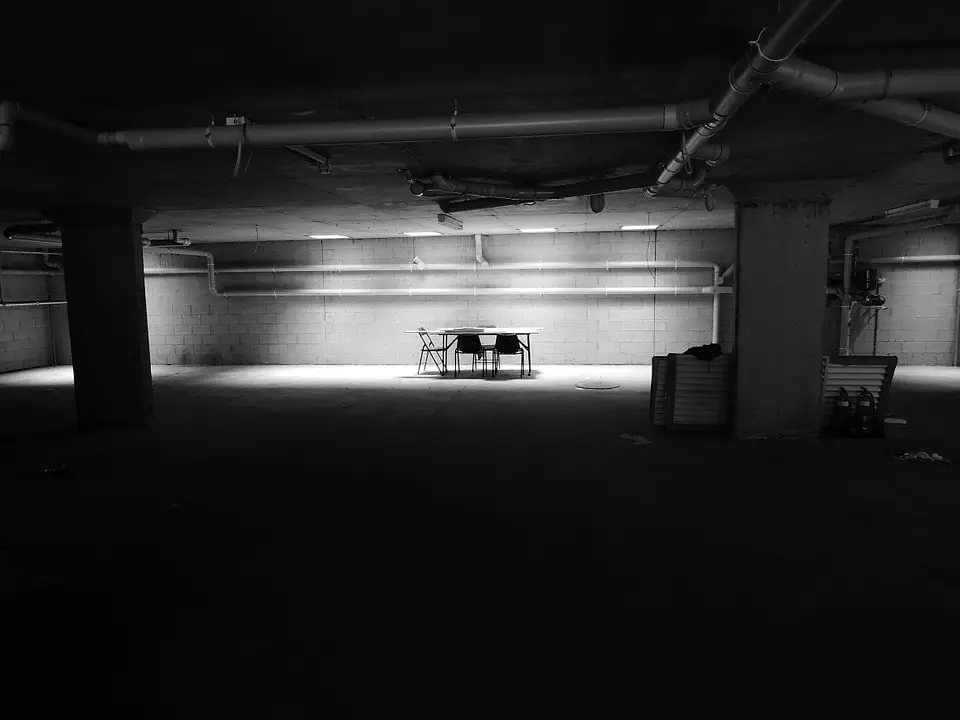
Clean Air Throughout the House
Many internal cooling and heating systems make use of air from the basement. This means that if there are allergens present in the basement air, they have a higher chance of entering the rest of the house. Having an air purifier in the basement keeps the air clean to ensure the rest of the house has safe air for you to breathe.
Gets Rid of Mold
No one wants their basement to have mold. With a quality air purifier in the basement, you can get easily get rid of mold spores. This will allow you to prevent a mold problem in the long run.
No Dust Buildup
Many of us can’t always remember to dust the basement or don’t have the time to go down there with a duster. However, by having an air purifier in the basement, you can keep dust buildup at bay and ensure your house is clean from top to bottom.
Fights Germs
A quality air purifier has filters which kill viruses, bacteria, and other pollutants. With germ-free air circulating the basement, you can be at peace with regards to your household staying healthy especially if the kids (with asthma or allergies) like to play in the cellar.
What Makes an Air Purifier Great for Basements?
Typically, basements have problems with air quality since they breed Volatile Organic Compounds (VOCs), dust, stagnant air, and molds. Therefore, with little to no air infiltration within such a humid environment, the piling up of such elements results in low air quality.
Air purifiers have some of the following features that help in improving air quality:
Carbon Filters for Removing Pollutants
Basement air purifiers can get rid of many pollutants found in the basement, such as VOCs and dust particles through the use of carbon filters. These purifiers have different filters that can capture up to 99% of the contaminants that are as minute as 0.3 microns.
Ionizer for Improved Air Circulation
If your basement does not have a door or windows, then the air in that area is usually stuffy and stale. Air purifiers would help circulate the air within the space and in temperature regulation, which improves the overall circulation of air in the area.
To achieve this, the ionizer discharges negatively charged ions that attract positively charged dust, pollen, or other pollutants. The added weight makes them fall to the floor, leaving only the light particles that the air purifier can work on easily.
UV Light for Removal of Molds
Most basements are breeding grounds for mold spores since the spaces usually have poor ventilation, are dark, and usually very damp. However, with air purifiers, the mold spores can be removed by sucking them up inside the filters and then destroying them using UV light.
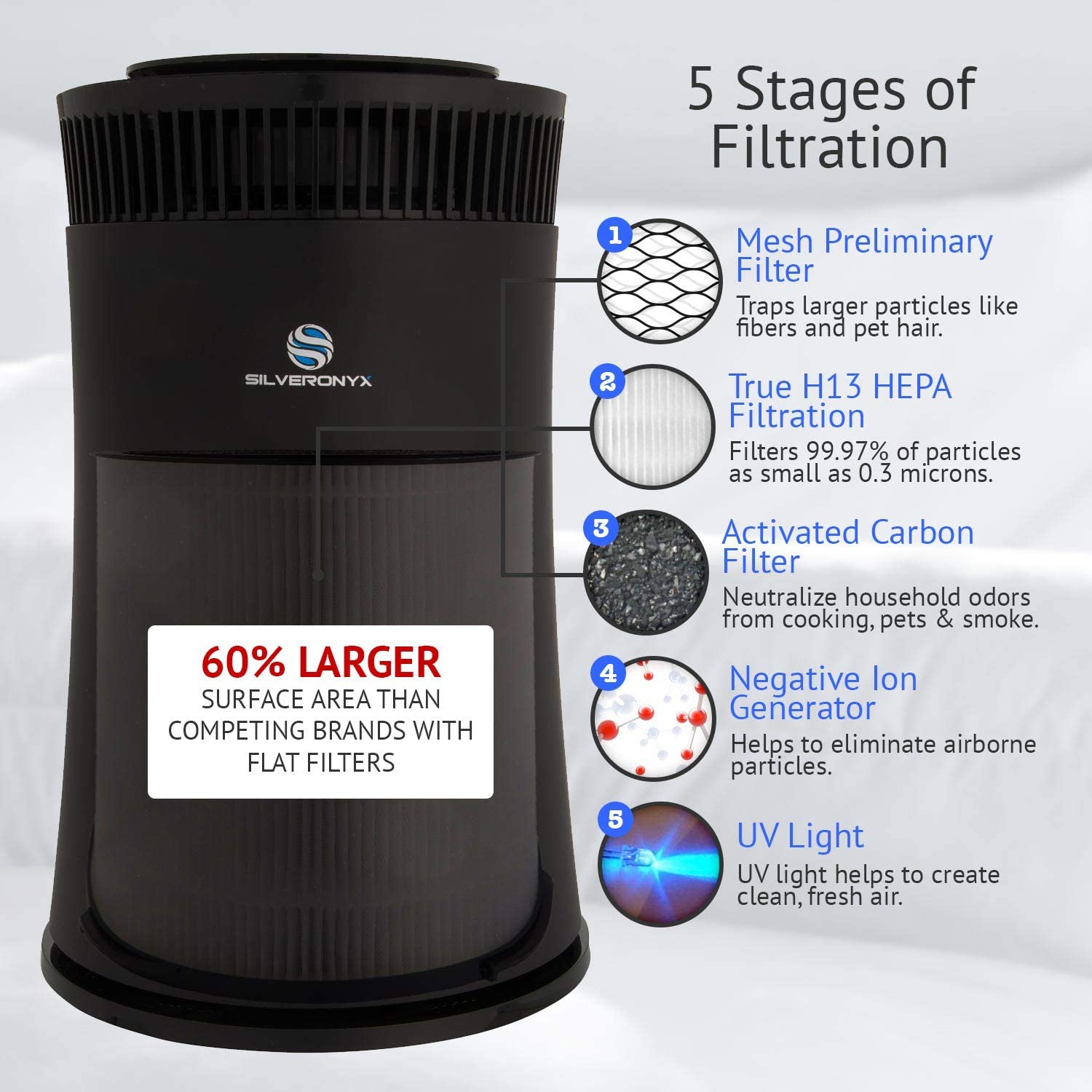
Basement Air Purifier Tips, Tricks, and Hacks
Placement
After buying a basement air purifier, in most cases, you shouldn’t put it exactly at the center where it is easy for it to disrupt your movement. It is advisable to put your air purifier close to the center if possible, instead of a corner. Doing this will ensure that there is a lot of air circulating near the device, enhancing its efficiency to clean the air in the space. There will be fewer interruptions since you won’t be moving near it quite often.
Avoid Switching off the Air Purifier
Do not only switch the air purifier on when you feel you need it. Air purifiers perform best when they are left to operate all day and every day. The longer the unit is on, the better it performs and the cleaner the basement air becomes. There will be no build-up of contaminants in the space.
Check the Filters Frequently
For optimum performance, you will need to ensure that the filters of the air purifier are not clogged up with pollutants or trapped particles. Therefore, it would be best if you ensure that your filter is clean most of the time as this will help enhance its efficiency in cleaning the surrounding air.
Types of Air Purifiers That are Great for Basement Use
Here are some types that work well in the lowest level of your home:
High-efficiency Particulate Air Purifiers (HEPA Purifiers)
HEPA purifiers are best for the removal of particles in the air. The particles are trapped on the filter and can’t flow out back into the basement space. Due to the non-particulate nature of odors, HEPA purifiers are unable to clean the air of any bad odors. As such, they are most suitable when used together with other types of air purifiers that can clean out the odors.
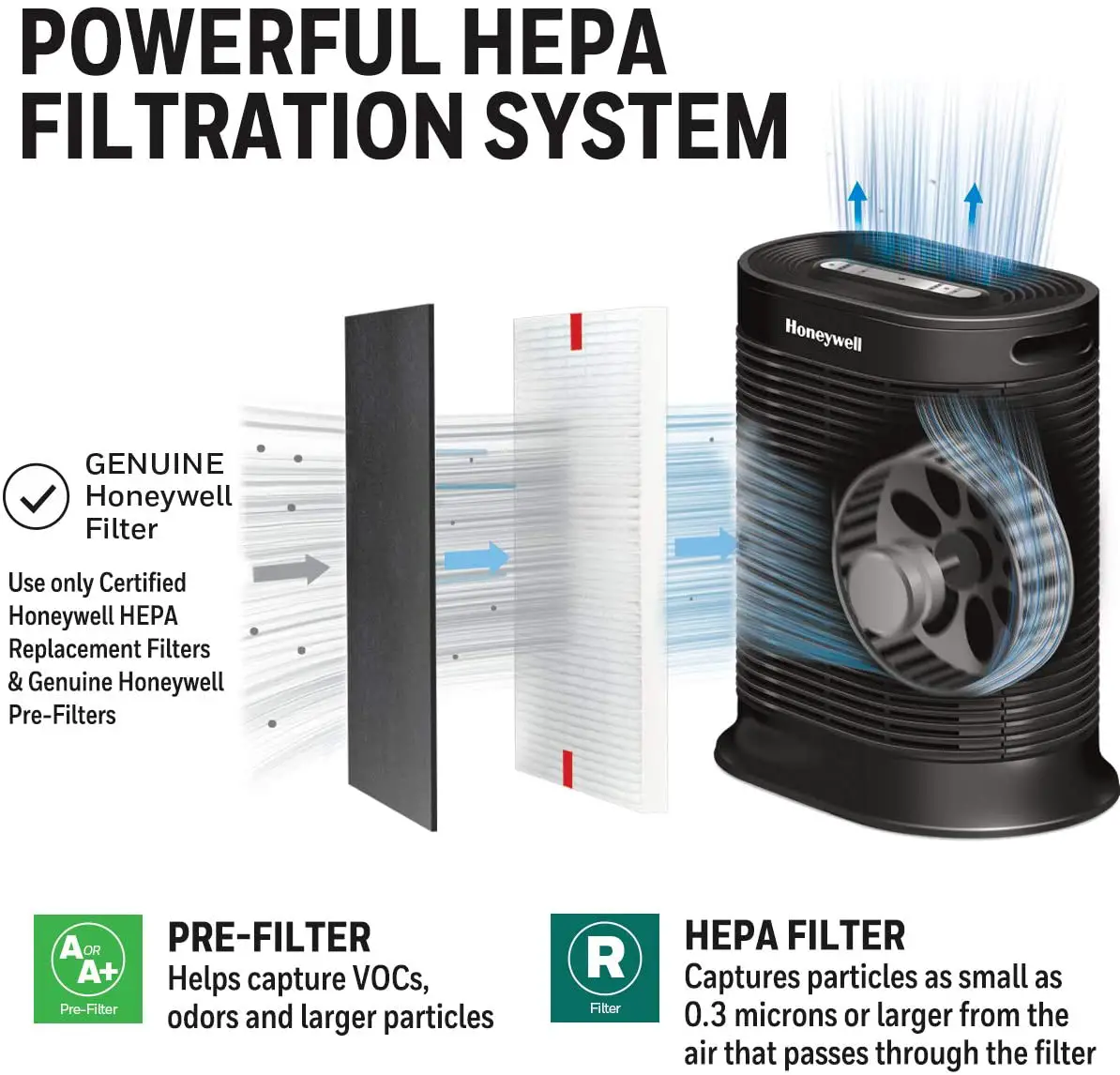
Ultra-Violet HEPA Purifiers
HEPA purifiers with UV light are a good option in basements prone to dampness that would cause the proliferation of mold. The UV light kills any mold particles or bacterial growths that collect on the filter or are in the basement within its proximity.
Activated Carbon Air Purifiers
When used in the basement, these air purifiers are good for removing pollutants by chemically absorbing Volatile Organic Compounds that cause odors. It is important to note that some VOCs are odorless and as such, you should always have your Carbon filter air purifier on as much of the time as possible.
You should also check that the weight of the carbon in the purifier is well on the higher end compared to the rest of the purifier. This is especially important because the carbon filters trap these gases and may become saturated, leading to zero absorption or the “unsticking” of the initially trapped gases such that they flow back into the air.
Basement Air Purifier Comparisons
Hopefully, these comparisons will help you in your decision process:
Air Purifier vs Dehumidifier for Basement
Similarities
Both air purifiers and dehumidifiers are excellent devices that can help enhance the quality of air in the basement by eliminating contaminants or humidity within it. Purifiers remove the gases or particles in the air while a dehumidifier lowers the air humidity levels by reducing the moisture in the air particles it attracts into it and releases back into space.
Differences
An air purifier circulates the air by capturing airborne contaminants such as pollen, smoke, and dust. It can also eliminate chemical or musty odors.
A dehumidifier cleans the air by sucking in the moisture within it, reducing humidity. They also kill microbes and molds due to the electrical heat they generate within the unit.
Germ Guardian vs Honeywell
Similarities
Both of the air purifiers can trap up to 99.97% of the air particles up to a size of 0.3 microns. The filters also have activated carbon that absorbs odors and other particles in the basement.
Differences
The Germ Guardian air purifier has a room coverage of about 153 square feet. In comparison, Honeywell has a room coverage of 170 square feet, which makes it more suitable for greater room coverage than Germ Guardian.
The Germ Guardian has a 3-in-1 filtration mechanism that includes UV light technology, a charcoal filter, and a HEPA filter. The Honeywell purifier has four levels of cleaning but does not have UV technology.
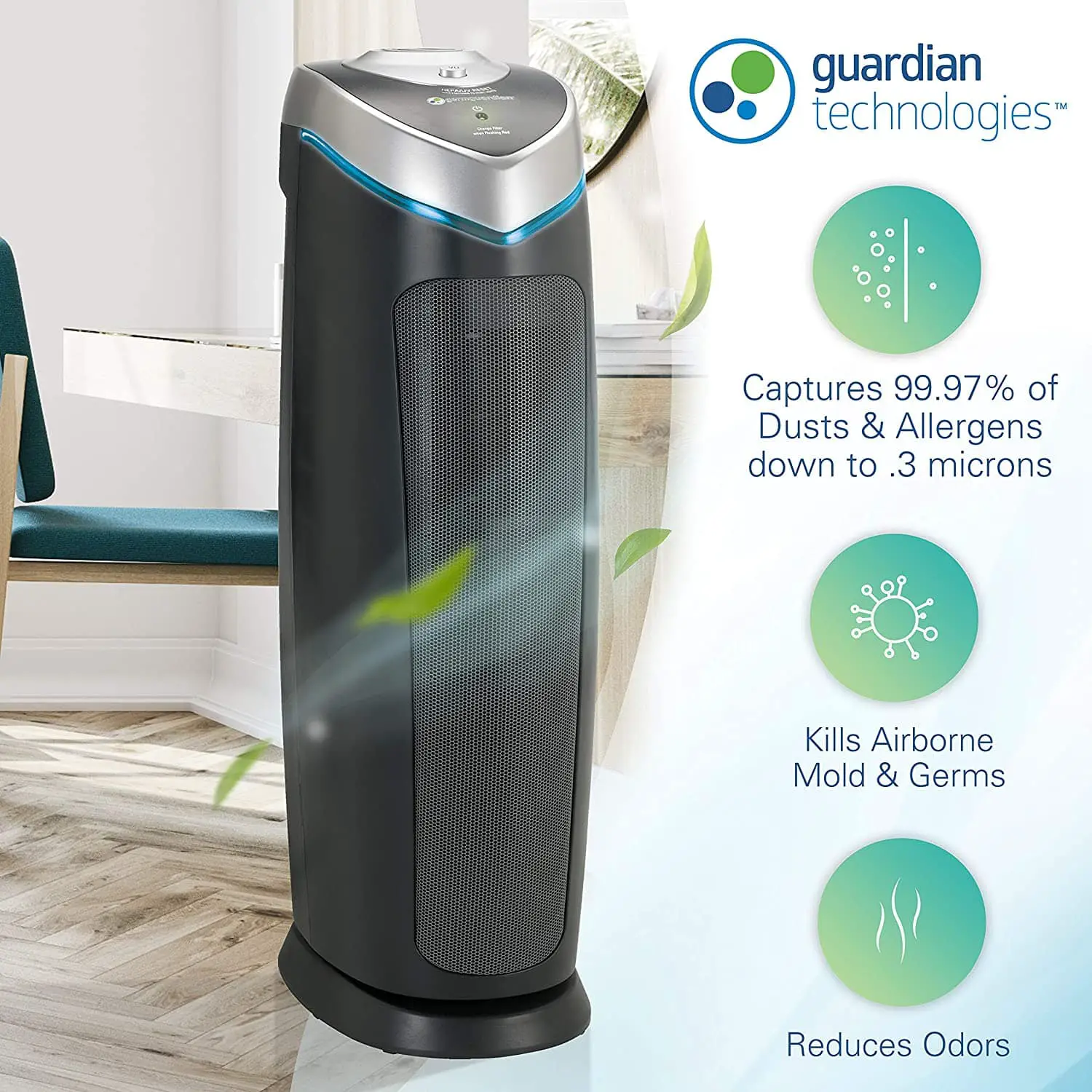
How to Clean a Honeywell Air Purifier
- Start by removing the outer grill to access the pre-filter
- Use a vacuum cleaner to remove all the debris captured on the grill
- Use a HEPA vacuum to clean the pre-filters. In the end, ensure the pre-filter is as clean as possible. If it doesn’t, then you may consider replacing it especially if it has served you for about a year
- Use the same HEPA vacuum to clean the HEPA filters of the air purifier. Ensure you have captured the spaces in between the HEPA filters to remove every particle captured in there
- After you are done, return the pre-filter and the grill. Ensure they are intact.
Be sure to watch the video below for a detailed process of the steps we have just described above.
How to Clean a Germguardian Filter
- Carefully follow the dismantling process of removing the filters
- Dust off any excess dust in the filters
- If it is a washable filter, clean the dirt and dust on the filter while ensuring that water is at medium pressure to avoid damage. Wash both sides of the filter.
- In case the HEPA filter is non-washable, use a vacuum cleaner on a low setting. Ensure that you have run the hose or brush over the filter’s entire surface to remove dust from all the corners
- Place the filters outside to dry. Ensure they completely dry before placing them back
- Follow the manual keenly when reinstalling the filter in the purifier.
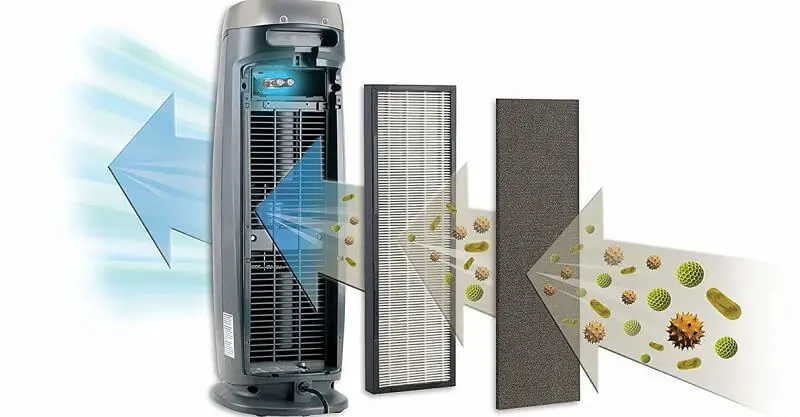
Conclusion
Investing in a trustworthy (quality) air purifier for a basement is recommended if you don’t want to deal with mold problems. Furthermore, such air purifiers ensure you have safe and fresh air to breathe whenever you go down into the basement or even as your HVAC system pulls air from the surrounding area.
We hope our ‘Best Air Purifier for Basements’ list will be able to help you make an informed buying decision. Take your time and get the air purifier that meets your needs.
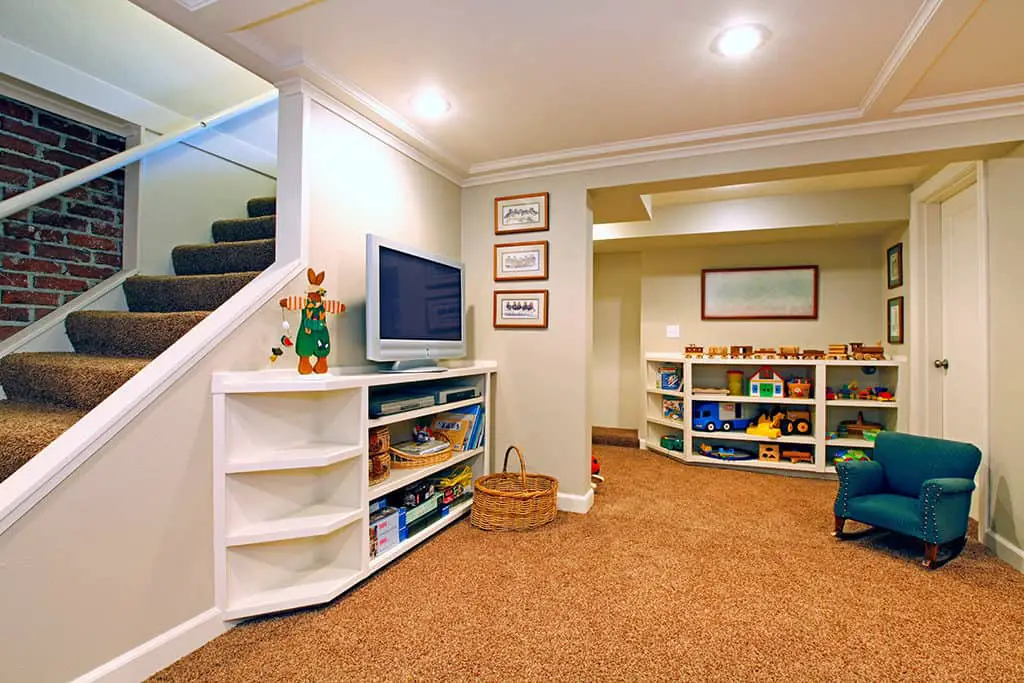
People Also Ask
This section contains questions that most people ask about air purifiers for the basement. From this section, you will get some useful insights on some of your concerns or burning questions about air purifiers for your basement.
It is recommended that you place the air purifier closer to the center of the basement. Precisely, make sure that the unit is about 2-6 feet from the surrounding wall to allow the air around it to circulate and get filtered easily. It is also ideal to place the air purifier within the area that is mostly used so that it cleans the air around that spot the most.
The size of an air purifier will depend on the size of your basement. Air purifiers come in different sizes to cover different spaces, with the coverage measured in square footage. When buying an air purifier, measure out the size of your basement in square footage and check that this is close to or in line with the suggested air purifier’s square footage.
Air purifiers majorly capture the particles in the air such as hair, pollen, dust mites, and pet dander, among other particles. However, they cannot reduce the moisture within the air. To dry out the air in the basement, you can use a dehumidifier. It is okay to use the two devices simultaneously as this will improve the overall quality of the air.
Air purifiers can help eliminate chemical and musty odors. Air purifiers do this mostly using the activated carbon filters, which is the only element within air purifiers that can remove the musty smells.
HEPA air purifiers with UV light can help extract basement mold by sucking and trapping mold particles inside their filters. These are then destroyed using ultraviolet light. This being a common problem in air quality, most air purifiers now incorporate UV light technology to eliminate those molds.
Carbon filter air purifiers help eliminate musty basement smell since they absorb allergens, smoke particles, pet dander, mold spores, pollens, and dust which then leaves your basement fresher and cleaner than it was before. These substances cause bad smells in your living or working space. The carbon filter air purifiers also rid the air of Volatile Organic Compounds that cause musty smells and odors.
